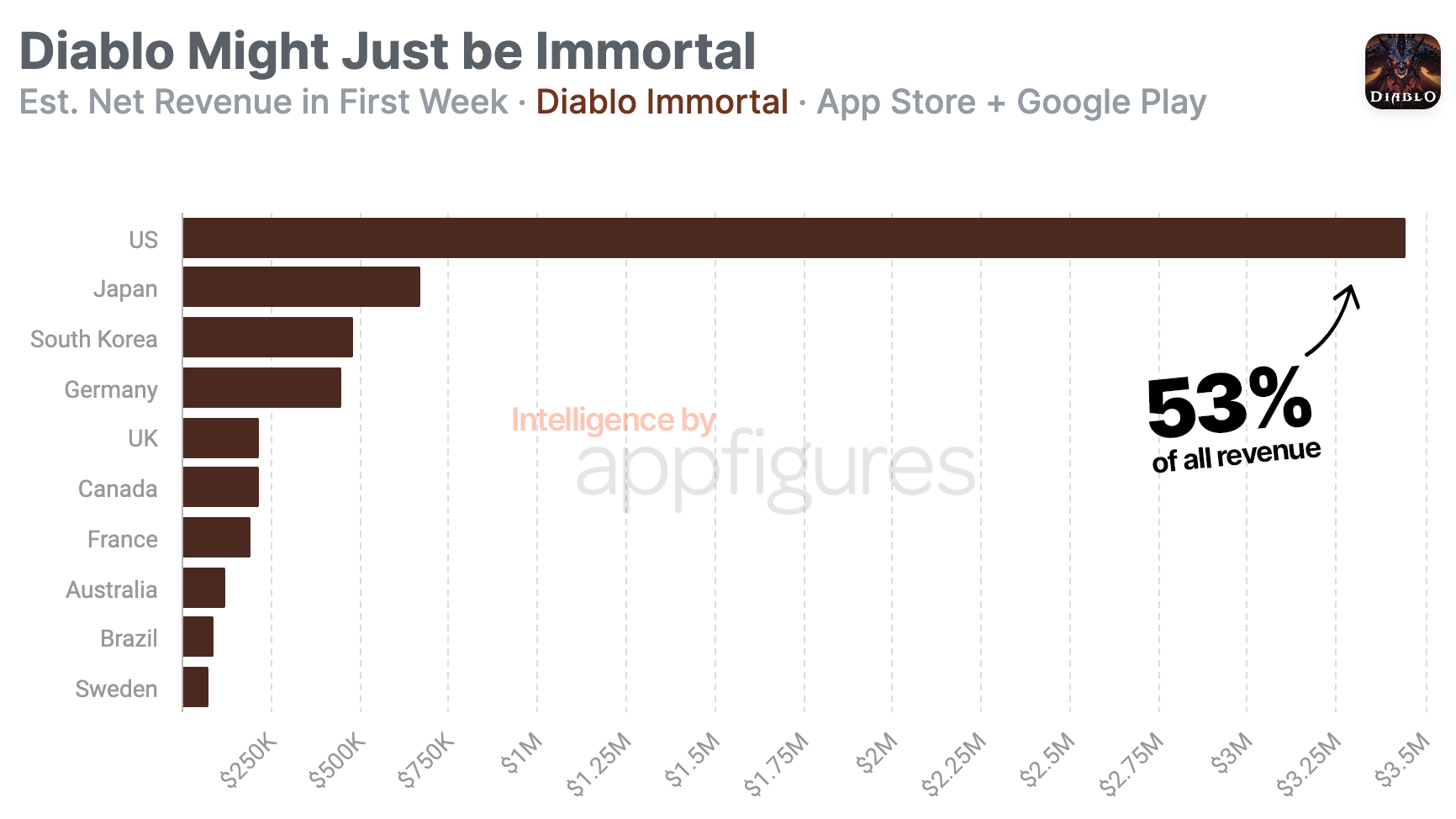
If you're a gamer or an old timer, the name Diablo should be familiar to you. I'm at least one of those two (I'll let you guess which one), so I've been waiting patiently for Blizzard to release Diablo for quite a while.
Now that the game's been released and has a few days in the stores, it's time to see how it's doing. For that, we'll dip into our revenue estimates.

In its first week on the air, Diablo Immortal, which was developed for mobile first and wasn't supposed to be on PC (but is now in beta), has earned a whopping $6.5 million in net revenue, according to our estimates. That's what Blizzard gets to keep after giving Apple and Google their fee.
Most of the revenue was generated in the US, which contributed roughly 53% of the total. Japan, South Korea, Germany, and the UK were the top five countries by revenue.
Store wise, Google Play added about 30% of the total, with the App Store being responsible for the larger portion. Not a real surprise here.
Here's the thing. Many gamers who played Diablo Immortal complained about the game's constant need for microtransactions and how things get very expensive and progress requires a big wallet. That seems like something more free-to-play games with big brand names are trying to do these days.
I can't fault them. Monetizing is hard, advertising has become more expensive thanks to ATT, and the competition is already ahead in terms of optimization. I expect the trend to go in that direction for more games, especially if it works, which I'd say is the case here.
Anthropic bet big on a timely Super Bowl ad that mocks ChatGPT for Claude. The data shows it worked even better than they expected.
What does it look like when AI apps dominate both the download and revenue charts? January 2026 gave us a pretty clear answer.